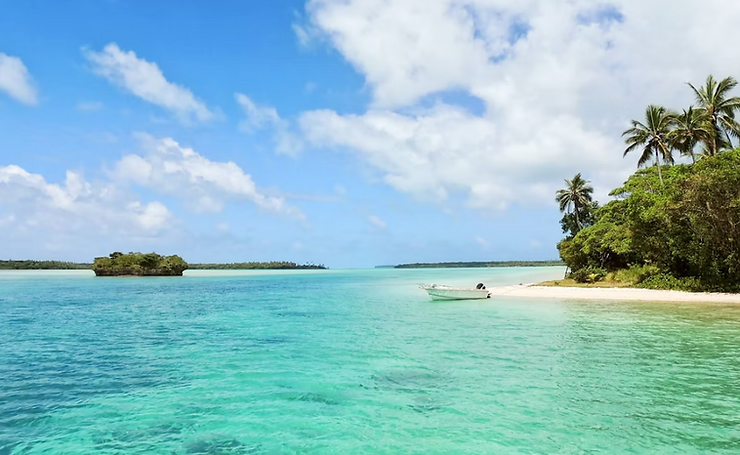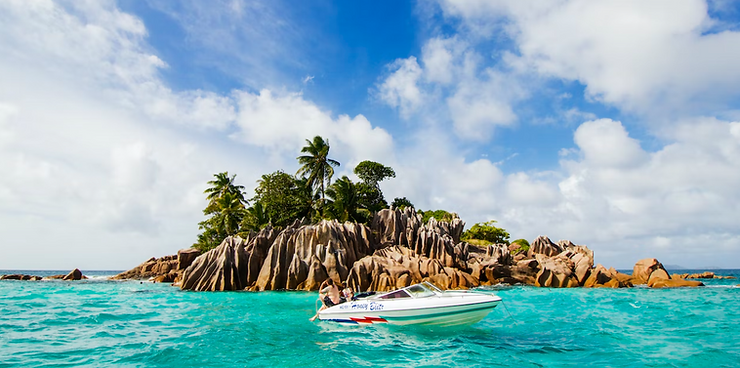- Over 50 countries now offer digital nomad visas across Europe, the Americas, Asia, and Africa.
- Top hubs include Spain, Portugal, Mexico, Estonia, and Croatia for lifestyle, cost, and ease of application.
- Most visas require proof of remote income, health insurance, and a clean record.
- Stays typically range from 6 months to 2 years, often extendable or renewable.
What is a digital nomad visa?
A digital nomad visa enables any remote worker to reside and do business abroad without having to immigrate or submit a residency application. It is a program or scheme that provides an individual the legal right to work remotely while staying away from the country of their permanent residence. Moreover, people with a digital nomad visa are not additionally bound by the tax rules of the nation they are working from.
Digital nomad visa countries allow professionals to stay in the nation longer than a tourist visa permits. The latter permits them to stay in the nation for a maximum of six months or 30 days. However, individuals are allowed to stay for a longer period—typically a year—to carry out remote employment, if they have a tourist nomad visa. The duration of a year can also be extended for one or more years, depending on the country issuing the visa.
In countries with digital nomad visas, remote workers can work on a nomad visa without having to worry about regularly renewing their visas or dealing with other immigration concerns. A digital nomad visa gives people the opportunity to live in a nation, gain a sense of it, establish a work schedule that works for them, and simultaneously explore the area.
In short, digital nomad visas allow people to enjoy their time in another country while maintaining a stable income source. They need not put their career in hold anymore.
Digital nomad visa requirements
With Europe being the region with the highest number of digital nomad visa countries (as of 2022), now several countries have digital nomad visas. Though each of these countries offering digital nomad visas have specific requirements, there are a few generic criteria one must meet to work remotely from digital nomad visa countries.
- You must be over 18 years of age.
- You must have a job you can perform from anywhere in the world.
- You must have a specific minimum monthly income (the minimum income varies by country).
Read more: Hire and Pay Independent Contractors in India
Countries that offer nomad visa
These digital nomad visa countries have a special visa or temporary residency permit in place that allow you to work remotely for a foreign incorporated business or a foreign employer.
Of the 50+ countries with digital nomad visas, there are a few very new to the concept of nomad visas. Hence, the process of visa application is somewhat bureaucratic.
Here is a list of digital nomad visa countries with details about their costs and requirements.
1. SPAIN

The Spain DNV is a travel authorization that will allow non-EU citizens to legally live and work in Spain. In general, remote employees who are independent of their location are given a Digital Nomad Visa.
Pointing out that the Startup Act, the new law behind the Digital Nomad Visa, is accountable. The Spanish Council of Ministers has decided to send the Spanish Parliament a draft of the Startup Law.
The Startup Act will be continuously reviewed and assessed when it is put into effect.
The Visa fee is $80.
Requirements:
Monthly income must amount to at least €1000 or savings worth €25800
- Proof that source of income (company or client) is based outside Spain or location independent business
- Health insurance
- No criminal record
2. PORTUGAL

Digital nomads have a few options if they wish to live and work in Portugal because the country has numerous schemes in place to entice investment and new citizens. The D7 visa or the entrepreneur visa is likely to be a good fit for anyone with a location-independent income who wishes to reside in Portugal for a medium to a long period, even though Portugal has not developed a specific program for digital nomads.
A Visa fee of €83 and an additional €72 need to be paid for the resident permit for your official ID in Portugal.
Requirements:
- D7 Visa application form
- Proof residency
- Monthly income must amount to €600
- Have to be national of a country from outside of the EU
3. NORWAY

Many countries, particularly those reliant on tourism, have seen their economies suffer as a result of the coronavirus pandemic. They start the process of bringing in long-term residents through specifically created visas for the wave of freelancers and digital nomads that is continuously growing to relieve their economies.
The expanding list of countries offering digital nomads visas now includes Norway. However, in contrast to other digital nomad visa countries, Norway's digital nomad visa is essentially broader once travelers apply for such visas, it enables a lifelong stay.
The visa allows you to live and work remotely in Norway for 2 years. The cost for this visa is NOK 6,003.
Requirements:
- Proof of residence
- Yearly income must amount to at least €35700
- Proof that source of income (company or client) is based outside Norway or location independent business
- Should have Norwegian clients
4. ICELAND

One of the first Schengen nations to offer a remote work permit designed especially for digital nomads was Iceland. Iceland's digital nomad visa enables remote employees to stay and do business there for up to 180 days.
The visa fee is ISK 12,200.
Requirements:
- Proof that source of income (company or client) is based outside Iceland
- Monthly income must amount to at least $7700
- Have to be national of a country from outside of EU/ EEA/ EFTA
- Taxes must be paid during the entire stay in Iceland
5. GERMANY

You can apply for a residence permit for freelance employment ("Freiberufler") if you want to work for yourself in one of the liberal professions. It is only valid for a year, but you can apply again.
Employment contract(lodged before the applicant arrives in Germany) selbsitändige Tätigkeit. It is a residency permit for foreign freelancers and self-employed people to live in Germany for a period of up to 3 years.
The Visa fee is €100.
Requirements:
- Must register with the German Tax Office
- Proof of residence in Germany
- Provide services that benefit the local community
- Health Insurance
Read more: Employee and Independent Contractor misclassification
6. GEORGIA

In August 2020, Georgia became one of the countries that offer digital nomad visas. The name of this visa is "Remotely from Georgia." It provides the option of "Visa on Arrival" to self-employed nationals of 95 different countries, allowing them to travel and stay in Georgia for up to a year without having to apply in advance.
People who do not reside in one of these 95 nations must apply before traveling to Georgia. However, they can take advantage of the visa on arrival option if they have a work and residency permit from one of these 95 nations.
There is no fee for Georgia’s remote work visa.
Requirements:
- Monthly income must amount to at least $2000
- Taxes must be paid throughout the entire stay
- Proof that source of income (company or client) is based outside Georgia
- Health insurance
7. ESTONIA

The Estonian government's desire to promote immigration and access to the nation's infrastructure may not be new, but the digital nomad visa is. It introduced its e-residency program in 2014, which enables people all around the world to use Estonian services without having to travel there in person.
A Type C Digital Nomad Visa can be obtained if your stay in Estonia will be shorter than 90 days. On the other hand, you must apply for an Estonia Type D Visa if your trip will last longer than 90 days (Estonia Digital Nomad Visa).
Visa Fee:
- Type C costs €80
- Type D costs € 100.
Requirements:
- Application form
- The application form must be verified by a nearby Estonian embassy
- You must prove that you meet the minimum income requirements of the Estonia Digital Nomad Visa. The current requirement is €3504 per month (before tax deductions).
- Health insurance
8. CROATIA

The Croatian government officially unveiled its Digital Nomad Visa scheme in January 2021, following months of speculations about enabling them to live there.
The Croatian visa for digital nomads is more akin to a short-term residence permit than a visa, though. With the possibility to reapply once it expires, this visa permits digital nomads to stay in Croatia for anywhere between six months and a year.
The Visa fee is around €60.
Requirements:
- Yearly income must amount to at least 202800 HRK
- Proof of residence(rental or permanent)
- Health insurance
- No criminal record
9. MONTSERRAT

With the introduction of their new program, the "Montserrat Remote Work Stamp", beginning in February 2021, Montserrat is one of the most recent Caribbean countries with digital nomad visas.
Travelers who can work remotely can fly to Montserrat and stay for up to 12 months without having to pay any local income tax or complete any other laborious residence paperwork after receiving clearance, which reportedly just takes 7 business days.
Visa fee of $500 for individuals & $750 for families.
Requirements:
- Proof of residence
- Monthly income must amount to at least $70000
- Proof that source of income (company or client) is based outside Montserrat
- Health insurance
10 . JAMAICA

In Jamaica, 53 nations are permitted to enter Jamaica without a visa (no visa requirements). These include Uzbekistan and Malawi, among others.
25 nations are permitted entry into Jamaica with an electronic visa (e-visa). Turkey and Cambodia are two of these nations.
19 nations' nationals are permitted to purchase or receive a visa upon arrival in Jamaica. Senegal and Somalia are two examples of these nations.
Citizens of 95 countries must first obtain a visa to enter Jamaica. These nations include Burundi and Tunisia.
Visa costs: $60 and $140 (depending on the length of stay).
Requirements:
- Valid passport
- Original letter from organization affirming job offer
- Work permit approved by or on behalf of the minister of labor
- Health insurance
11. DOMINICA

Work in Nature (WIN) long-stay visa, Dominica's unique remote employment visa program, went into effect in April 2021. The visa offers the chance to work remotely for up to 18 months while on the island, along with a variety of extra benefits like duty-free purchases and special discounts from different service providers.
Other perks include the option to apply for an annual driver's license, duty-free discounts when you import your items into the nation, and free travel while you have a visa.
The visa fee is $100. Also, an additional visa fee amounting to USD 800 for individuals.
Requirements
- Proof of income
- Yearly income must amount to at least $50000 or an equivalent amount in savings
- No criminal record
- Willingness to make the required financial contribution.
12. BERMUDA

Digital nomads and professionals who typically work from home are given a 1-year pass to reside and work on the island under the "Work From Bermuda" certificate. For individuals who have been working from home offices or cities with high infection rates longer than they had anticipated, the program is quite alluring.
Bermuda is the second country in the Caribbean to issue this form of visa for digital nomads, following Barbados, which on July 18th began accepting applications for its brand-new "Remote Work" visa, known as the 12-Month Barbados Welcome Stamp.
The cost is one of the greatest distinctions between the Bermuda and Barbados programs. The Work From Bermuda scheme costs just $263, compared to the exorbitant $2000 price tag for the Barbados Welcome Stamp program.
Visa fee: $263.
Requirements:
- Valid passport
- Proof that source of income (company or client) is based outside Bermuda or location independent business
- Health insurance
- Yearly income must amount to at least $50000
13. BARBADOS

The 12-month Barbados Welcome Stamp visa, which Barbados established in June 2020, is a new remote work program geared toward foreigners wishing to relocate there. An intriguing feature of this digital nomad visa is that businesses can start and fund applications for one or more of their remote employees, allowing them to entice those employees to relocate to the Caribbean island.
Cost of program: $2000 individual or $3000 for a couple/family for a year.
Requirements:
- Proof that source of income (company or client) is based outside Barbados or location independent business
- Health insurance
- Yearly income must amount to at least $50000
- Reference letter
14. ARUBA

One of the nomad visa countries with a short-stay visa program, the nation’s visa scheme enables guests to stay for up to three months. Additionally, this is a fantastic opportunity for people to stay longer and work on the area's white sandy beaches.
The "One Happy Workation" program is available to Americans traveling abroad; however, it is not permitted to work for an individual or business in Aruba. Additionally, the program allows digital nomads to work remotely from anywhere for 90 days.
It should be mentioned that the Aruba short-stay visa program only permits stays of up to three months. Since you are not listed as an Aruba resident, you will not be required to pay income taxes to Aruba for the time you spent there.
The visa is free.
Requirements:
- Valid passport
- US citizenship
- Proof of accommodation
- Proof that source of income (company or client) is based outside Aruba
15. ANGUILLA

In August 2020, the Caribbean island of Anguilla introduced the Lose The Crowd, Find Yourself Work, Life, Bliss Program, which enables digital nomads to reside there for three to twelve months.
The program in Anguilla is distinctive in that it targets both students and nomads or remote workers, as well as their families. Additionally, you won't be assessed any local income tax.
Sadly, an extension of the Anguilla nomad visa is not possible. To stay on the island after its validity expires, you must apply for a new one.
In contrast to tourist visas, once you have a nomad visa, you can continue working to make money during that time and are not required to apply for full residency status.
Anguilla's Visa fee is $2000.
Requirements:
- Proof that source of income (company or client) is based outside Anguilla
- Proof of accommodation
- Health insurance
- Medical record of the past year
16. MAURITIUS

To welcome visitors looking to extend their experience of the country's natural beauty and balanced lifestyle, Mauritius has introduced a Premium Travel Visa with lone-year validity. As a result, a non-citizen has the option of staying for an additional year.
This means that you may ask for a three-month extension from the Passport and Immigration Office.
Anyone who wants to reside in Mauritius for up to 12 months must apply for a Premium Visa, often known as a Premium Visa. You will be given a Tourist visa if you want to stay in Mauritius for 180 days or less.
Mauritius’ remote work visa is completely free and the application process is 100% online.
Requirements:
- Proof of intention of a long-term stay(rental agreement or other valid documents)
- Proof that source of income (company or client) is based outside Mauritius
- Health insurance
- Applicant must not enter Mauritius labor market
17. DUBAI

One of the digital nomad visa countries with a fairly simple procedure, Dubai’s nomad visa enables citizens of any country to apply for a one-year remote work visa. The Remote Working Visa Scheme is what it is called. It was recently launched after being first announced in March 2021.
Anyone who meets the requirements can move to Dubai under the program and have the majority of the same privileges as a regular resident for up to a year.
The virtual working program costs $287 per individual. Additionally, you must pay the processing fees and the premium for medical insurance that is valid in the UAE.
Successful candidates receive a resident ID and access to the majority of public services and facilities like other city residents throughout the one-year validity of the digital nomad visa for Dubai.
You can open bank accounts, enroll your children in nearby schools, rent a home or any other type of housing, open a bank account, or apply for a bank loan.
The cost of the Dubai digital nomad visa is $611. This amount includes the application fee of $287 and other processing charges, medical insurance premiums, and Emirates ID.
Requirements:
- Valid passport
- Monthly income must amount to at least $5000
- Employment contract valid for at least another year or proof that you run your own company
- Health insurance
18. CABO VERDE

In December 2020, Cabo Verde issued its digital nomad visa. Cabo Verde Remote Working Program is what it is named. A temporary work and tourism visa valid for six months is made available to remote workers. When your first period is up, you can renew it to extend your stay. Individuals and those who wish to bring their families with them may apply for this visa.
The fee for this visa is €20.
Requirements:
- Valid passport
- Monthly income must amount to at least €1500
- Health insurance
- No criminal record
19. MEXICO

Although Mexico doesn't have a specific visa for digital nomads, the majority of visitors can enter the nation with a 6-month tourist visa. But Mexico also has relatively straightforward temporary residence procedures if you want to stay longer. Digital nomads will be able to live in Mexico for anywhere between six months and four years thanks to the temporary resident visa. You won't be able to work for Mexican businesses.
The visa fee for foreign passport holders is $44.
Requirements:
- Proof that source of income (company or client) is based outside Mexico or location independent business
- Monthly income must amount to at least $1620 or the total sum in the bank account exceeds $27000
- Reference letter
20. COSTA RICA

One of the most well-liked nomad visa countries, Costa Rica is a location where digital nomads love to live and conduct their business remotely is Costa Rica. It's a great place to live and work because it has lovely beaches and a high living standard. Everyone enjoys surfing, and there are beautiful beaches. The overall cost of living is relatively low when compared to the United States and much of Europe, regardless of where you choose to settle down. In Costa Rica, remote workers can get by on $1,000 to $1,500 per month comfortably.
Requirements:
- Proof of employment and/or income
- Notarized bank reference
- Monthly income must amount to at least $5000 or a deposit of $60000 in a local bank
- Health insurance
21. COLOMBIA

International workers who meet the requirements may enter Colombia on an M-Type Freelancer visa and remain there for up to three years. A Digital Nomad Worker can take full advantage of the island's sunny beaches and bargain food and lodging costs while staying there.
The visa fee is $250.
Requirements:
- Valid passport
- Employment contract valid for at least another year or proof that you run your own company
- 3 educational and professional certificates
- Bank statement for previous 6 months
22. MALTA

Among the nomad visa countries, Malta is a significant location for film productions, given the region's warm climate and breath-taking scenery. Moreover, it has more than 300 days of yearly sunshine Malta remains a lovely country. Malta is a fantastic place to visit. They brought up the alleged "Nomad residence authorization. This initiative aims to have remote employees who are NON-EU and a renewable year period.
The visa fee is €300.
Requirements:
- Monthly income amounts to at least €2700
- Proof of residence(rental or permanent)
- Proof that source of income (company or client) is based outside Malta or location independent business
- No criminal record
23. SEYCHELLES

Seychelles is one of many digital nomad visa countries that provide visa options for expatriates and digital nomads. 'Workcation Program is the name of their program. Both employees and self-employed (company/business owners) can use it.
Travelers can escape to an exotic location while remaining safe and well-protected in Seychelles. Those who qualify for the Seychelles digital nomad visa are permitted to stay in the nation for up to one year while residing and conducting business in this stunning tropical location.
The visa fee is €45.
Requirements:
- Proof of being an employee/ business owner/ freelancer.
- Proof of income/ wealth
- Proof of accommodation
- Health insurance
24. ANTIGUA & BARBUDA

The Nomad Digital Residence program, which offers long-term accommodation for persons who work remotely, is active on both islands. The two-year visa costs $1,500 for individuals, $2,000 for couples, and $3,000 for families with three or more members, respectively. Applications must be completed and up to 11 documents must be submitted, one of which must show that the applicant expects to earn at least $50,000 per year over the program's term.
Visa fees are $1500 for individuals, $2000 for couples, and $3000 for families.
Requirements:
- Yearly income must amount to $50000
- Proof that source of income (company or client) is based outside Antigua & Barbuda or location independent business
- Proof of accommodation
- Health insurance
25. BALI

In Bali, which is already a popular choice for remote workers, prolonged stays are not permitted under the current visa rules. Instead, they want to attract more international visitors who will stay longer with their recently created digital nomad visa, encouraging more sustainably minded tourism on the island.
The visa fee is $185.
Requirements:
- Valid Passport
- Proof of accommodation
- Sufficient income for the stay
- Health insurance
26. CAYMAN ISLANDS

The Cayman Islands has joined the growing list of island states launching the Global Citizen Concierge Scheme as the digital nomad visa program spreads throughout the world (GCCP).
The GCCP is the longest remote work visa on the market, allowing unlimited journeys in and out of the country for up to 2 years, while the majority of other countries only give 1 year.
The visa fee is $1469.
Requirements:
- Proof that source of income (company or client) is based outside Cayman islands or location independent business
- Yearly income must amount to at least $100000
- Health insurance
- No criminal record
27. CURAÇAO
Curaçao has joined the list of nations that grant remote workers visas. It is referred to as the "@Home in Curaçao" Visa. They created the visa to stop the fall in tourism, and they now allow investors, digital nomads, and remote workers to stay for longer periods.
You can stay on the island for up to six months with the "@Home in Curaçao" Visa. You have the option of choosing a six-month extension when this period has ended.
The visa fee is $264.
Requirements:
- Return ticket from Curaçao
- Proof of accommodation
- Health insurance
- No criminal record
28. THE CZECH REPUBLIC

In the Czech Republic, there isn't a visa created especially for digital nomads or remote workers. There are, however, a few visa categories and a trade permit that will let you work while you're there. A Czech trade license, also referred to as the Zivno visa, when combined with a long-term business visa will enable you to conduct business in the Czech Republic by utilizing the Trade Licensing Act.
This Czech Republic visa for digital nomads is designed for those who want to stay there for a minimum of three months and a maximum of one year while conducting business there. The
The visa fee is €100.
Requirements:
- Proof of accommodation
- Proof that source of income (company or client) is based outside The Czech republic or location independent business
- Monthly income must amount to at least €2700
- No criminal record
Although there have been "digital nomads" for the past ten years or so, remote work will soon become the norm. Many nations are embracing the concept of remote work and looking into strategies to draw in an increasing number of digital nomads, including freelancers and remote workers.
Although many nations won't grant nomad visas for some more years, there are now more than 50 countries with digital nomad visas where you can start applying, including the nations listed above.
So, if you are a digital nomad, now, you have several countries to remotely work from. All you need to do is choose the ideal location for yourself, begin the digital nomad visa application procedure, and enjoy working remotely. However, remember to check the general digital nomad requirements that you must fulfil to work remotely from any location across the globe.


















